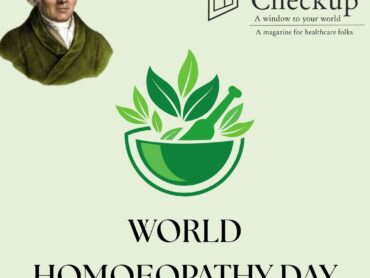Dr. Paul Farmer. This is a name that every doctor, healthcare worker, public health professional, health secretaries and ministers should know. If you have even the slightest interest in seeing someone’s suffering from illness reduced, then you should know Dr. Farmers work.
Paul Farmer was a physician and anthropologist who trained at Harvard Medical School. This fact alone must have conjured images in one’s mind of an austere, preppy, rather grand intellectual. The truth could not be farther from that. Paul Farmer was born to a family of very modest means in Massachusetts and grew up as one of six children in Florida. Modest means is an understatement. His family lived in a bus after his father started work as a school teacher. What began as a temporary living arrangement lasted till he went off to college. Therefore, these experiences were crucial in colouring his opinions on poverty and medicine. Interestingly, the bus his father purchased was previously used for screening tuberculosis.
He was a man so moved by the suffering of others, especially those ‘third world countries’, with diseases that were considered too virulent or alien to treat in the 1980’s. Namely, HIV/AIDS complex and MDR-Tuberculosis. Actually, he was frustrated more by the apathy of the world at large, especially the ‘developed’ western nations that peddled paternalistic policies and self-serving agendas under the guise of ‘helping the sick and poor in poor countries’. It was painfully evident to him, that intellectuals, policymakers, think-tank professionals and even public health ‘experts’ could not affect any positive change if they had lofty conversations in glossy meeting rooms and convention centres in Geneva, New York or Davos.
The moment one discusses cost-benefit ratios and cites poor infrastructure, general illiteracy or poverty as an excuse to deny any means of lifesaving care is the moment they lose any vestiges of humanity. These conversations were openly had back in those days, and are still less-openly had today. What was interesting was that the diseases that caught Dr. Farmer’s attention were those relegated to the fringes of medical research and were simply not on anybody’s radar by virtue of them being labelled as diseases affecting the poor in poor nations.
He founded Partner’s In Health with his friends and colleagues to provide meaningful solutions to these problems that nobody cared about. He worked extensively in Haiti as a medical student, often flying down to Haiti on weekends after attending medical school throughout the week. And later, as a doctor, he encouraged communal participation to help patients with tuberculosis and HIV take their medicines, reduce infectivity and survive longer. This was a radical change in the approach to such illnesses.
Along with his friends at Partners in Health they challenged institutional apathy and led efforts to mobilize caregivers and physicians in the countries they worked in as well as around the globe. They helped rebuild communities in post-earthquake Haiti one sick person at a time. And significantly for us in India, his friend, Dr. Jim Yong Kim, who later became the President of the World Bank, notified the WHO that most anti-TB drugs had been off patent for many years. Prompting a 90% reduction in the prices of these lifesaving medications.
He was one of the few doctors, who took into account individual stories and suffering despite looking at the ‘big picture’. He represents the ideal that any public health professional should aspire to be. He lobbied heavily to promote access to standard anti-tuberculosis medications in South America, the Caribbean and Africa. He did not believe like much of the west that those in resource poor settings should get “the preferential option for the poor” that is, the cheapest option with no meaningful treatment. Dr. Farmer was a aggressive advocate of giving every patient a fighting chance with the best available treatment of the time. He proved that the unsatisfactory patient outcomes in poor nations that everyone cried about were mainly for a lack of trying and resources.
This relentless pursuit of a world free from medical inequity led him to work in West Africa during the Ebola epidemic. He dedicated his life to watering “clinical deserts”, areas so painfully devoid of any semblance of medical care and attention. Sadly he passed away in Rwanda in 2022.
Through his work in all these nations at a community level, and his engagement with Partners In Health, Dr. Farmer’s legacy serves as a guide for us all to look beyond the walls of our clinic and touch the lives of entire communities.
Mountains Beyond Mountains is a book by Tracy Kidder, describing the extraordinary life, struggles and vision of Paul Farmer. It is considered essential reading in many Global and Public Health courses and this author agrees wholeheartedly, that reading this book is absolutely essential to the development of any idea of public health.









